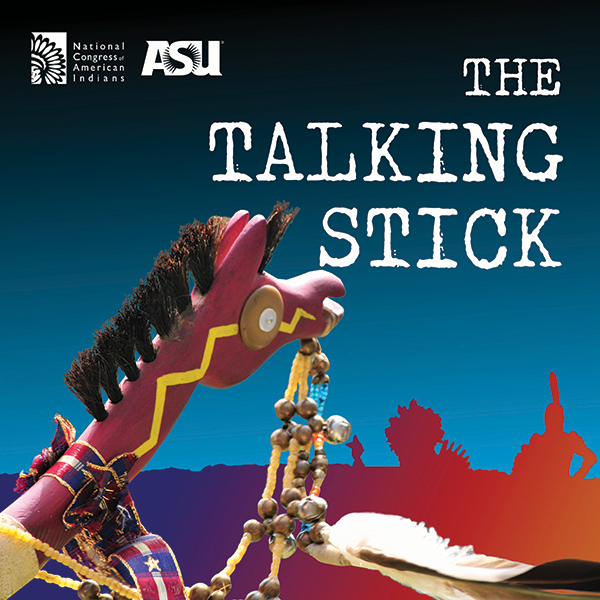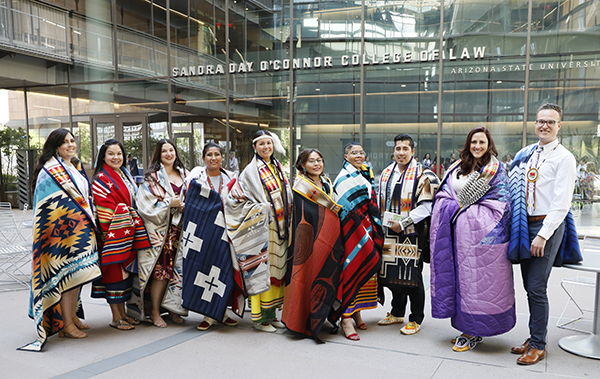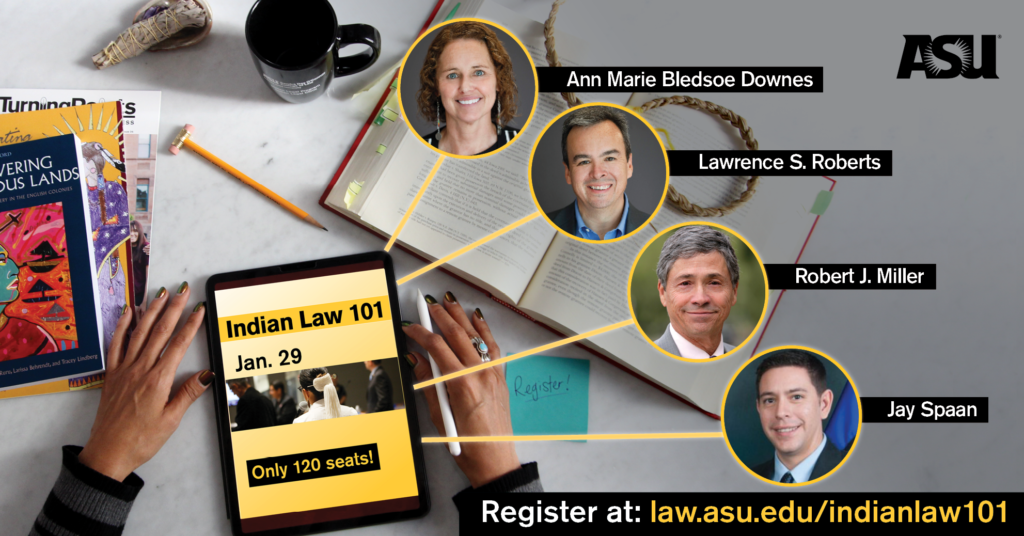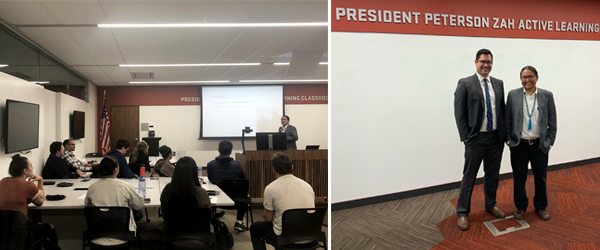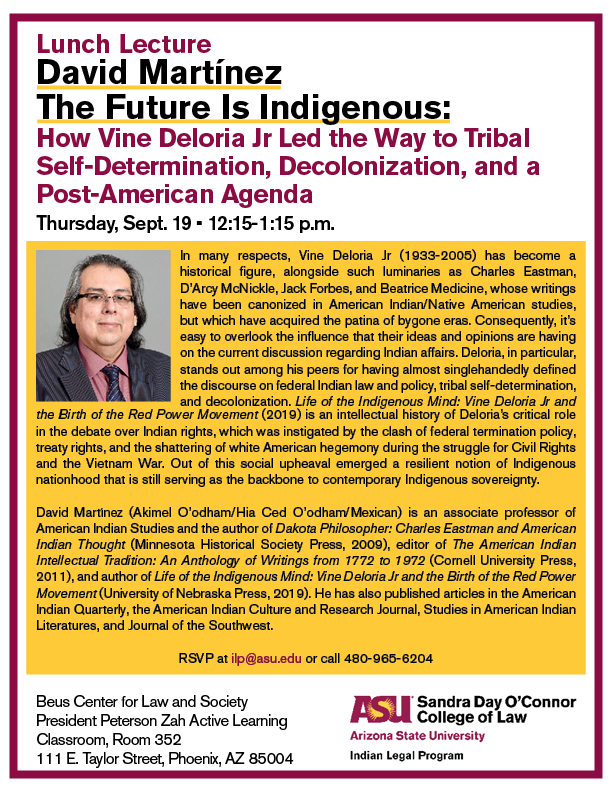Category Archives: Professors
Talking Stick Podcast – Tribal Gaming
Expanding our reach thanks to $5M donation
Faculty Update – Media
Faculty Update – Upcoming Event
Indian Law 101 – Jan. 29
Talking Stick Podcast – Conversation with Stacy Leeds
Final Class Guest Speaker
David Martínez Lunch Lecture – 9/19
We hope you join us for this special lecture by ASU American Indian Studies Associate Professor David Martínez about #VineDeloriaJr!
Free & open to public. Please send your RSVP to ilp@asu.edu.

